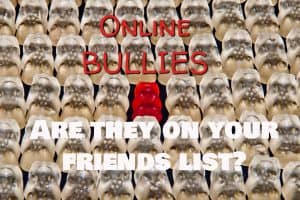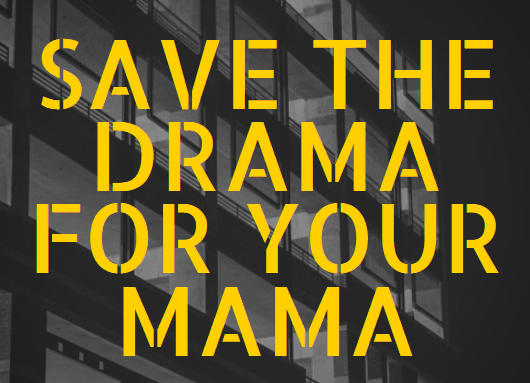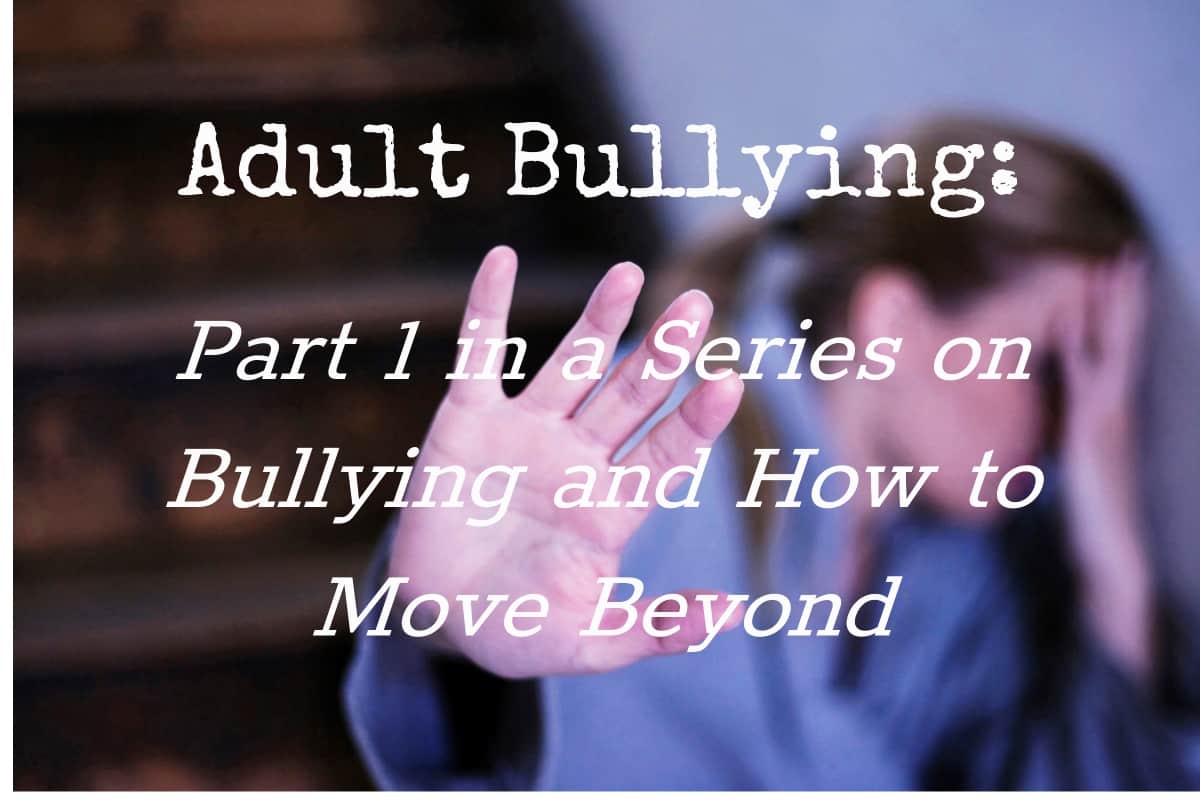Online Bullies Aren’t Just Mean Kids: They’re Your Facebook “Friends”
Bullies aren’t just your kids’ mean friends anymore. They aren’t just kids harassing your child on the way home from school or strangers fat shaming you on Twitter. They’ve evolved into online bullies, the kind who use social media in a negative way. Worse yet, they’re no longer just people you run into in random conversations, hiding until you say something that gives them an excuse to attack. They’re hiding in plain sight now and in the place you least expect it: your Facebook friends list.
I’ve always been a staunch supporter of bully awareness and prevention, so much that I have hated the diluted use of the term bullying. I still feel it’s not bullying when someone calls you a name once or states an opinion once or twice. It’s rude, bad behavior, but not bullying. Watering down how we use the term “bullying” makes it harder for the real victims of bullies need help, because many children – and some adults — are unsafe on a regular basis due to bullies who are physically aggressive, stalking them at work or at school and verbally abusive in a way that threatens someone’s mental health. (Talk to a kid who gets followed in a school hallway, called vile names in front of other kids, resulting in them being singled out and losing friends. They’ll tell you that they’d much prefer being called a name or told they’re wrong once or twice, in a heartbeat.)
But at the same time, more and more adults are displaying bully behavior. They may not be a bully in the normal sense of the word, but they’re a bully nonetheless. Online bullies are getting more and more common in a world full of political unrest and societal wrongs. It doesn’t make it okay though, so what do we do?
First, we need to recognize who those online bullies are. It may surprise you. They are the people who use Facebook to not only share their opinion, but to tell you that yours is wrong. They’re using Facebook to tell you how to feel, and when you don’t agree, they tell you you’re wrong. They may not see themselves as a bully, but bullies rarely do. There are people out there that in this world of growing equality still don’t see that their bully pulpit speeches about how to treat people and how to behave isn’t really equality. In fact, it’s going backwards. It’s divisive.
Do you find yourself often having to defend your feelings to another person? They may just be an online bully. If you share your opinion and they suddenly join in on Facebook, when they never engage with you otherwise, just to tell you that you’re wrong, or to correct you, they may be an online bully.
If you join in on someone else’s conversation and find someone continually telling you that you’re wrong, that person may be an online bully. You don’t have to be their friend to be exposed to these online bullies, so consider the friend whose page you’re on. Are they allowing this other person to attack you? They may not be an outward bully themself, but if they’re allowing it, is that okay? Does it mean they agree with what the person is staying to you? No. They may be the kid in the grade school hallway that saw you getting bullied but were too afraid to speak up for fear they would be the next victim. Either way, you have a choice. You can disengage from the conversation or you can unfollow or unfriend. You don’t need to have the last word. (In fact, bullies often do.)
Online bullies come in all shapes and sizes. They’re the kind who feel that their approach to politically-charged situations is the only right way, so they want to persuade you to not only see their side, but to agree with them. They often won’t stop until you agree or disengage. They can be pretty obvious — you reply once, and they reply immediately after, and often reply two or three more times before you respond. You can tell they’re riled up by the quantity of their replies and how fast they post them.
We do not need to agree to be equal or important. Just because someone has an opinion doesn’t make it right.
They’re also the kind that feel they have to defend someone, so they jump in and create a mob mentality approach. They don’t even have to know you, but they come to the defense of someone they know. These people are like the ones that stood behind the bully in middle school as he punched you in the face or tugged your backpack, cheering him on.
Sometimes, they’re your friend on Facebook until they feel you’ve wronged another friend, so then they start to reply negatively to random things you post, unprovoked. They are “standing up” for their other friend, looking for ways to be rude or mean to you. These ones are easy: unfollow and/or unfriend. (If you go the unfriend route, use your privacy settings. You don’t need these people seeing your stuff. People that talk smack publicly are going to do it privately, too.) I have one of these on my wall right now, and I just have to shake my head and laugh. People that don’t get that there are two sides to every story often don’t want to hear the other side. They enjoy the drama. I don’t feed into it. I don’t reply and give this person the chance to continue to bait, nor have I unfriended yet because these types of people often look for reasons to ramp up the middle-school behavior. I’ll pass on that unless she continues, but I do hope she realizes that it’s a waste of time. (Reminds me of Mean Girls, the movie!) See the pattern of how this is also childish behavior you’d see in school?
Sometimes it’s your family member that’s a bully. They have their own feelings on a topic and because you’re family, you can’t just unfriend. You may feel that you have to tolerate the behavior, but that’s not true. We don’t need to cut ties to be treated with respect. Family members sometimes abuse the relationship and feel that because you’re family, you’ll still be there for the next rant. Instead, extricate yourself if you can’t redirect the conversation. They may eventually get the point, or they may not, but it’s not our job to change people; we just can be above it all and move on without giving them more opportunity to rant at you.
Every time I scroll through Facebook, I see at least one person who is posting to tell us all about what an amazing giving thing she/he just did, so we should all do it, too. The post is frequently a bit superior and implies we’re not cool or good if we don’t do it, too. This is another form of online bullying. Recognize it and don’t let it sway you into taking an action that you’re not comfortable with or don’t believe in. And above all, don’t let it ruin your budget by guilting you into making a charitable contribution you can’t afford. (And aren’t we supposed to do good things quietly, for the joy of doing the right thing, not the public praise?)
Some online bullies use Facebook, or Twitter, to be self-righteous and tell us all we’re wrong if we don’t <vote a certain way, wear a certain thing, look a certain way, etc.>. While they may have a good heart, somewhere in there, nothing good is achieved by making others feel bad. A good intention doesn’t judge people or look down on them. This is bullying to sway you into making a decision. Truly open-minded conversations that result in us learning from each other happen when there’s no “You are wrong” and “You need to xx” taking place.
Many online bullies haven’t fully matured since high school. They’re stuck in these roles of insecurity or superiority. At some point, they may have benefited from this behavior, or they enjoy the feeling of intimidation. Some people are proud that they intimidate, so this is a badge or honor. Some will go so far as to even tell you they’re proud to be a witch. You can’t change them now, as they really don’t want to hear your opinion or feelings anyway. With so many others available to speak with on Facebook, not engaging is your best way to prevent further discussion. This type of personality typically moves on to someone else…again, just like in school.
Once you spot the online bullies in your world, you’re able to decide how you want to handle them. Just remember, it’s not your duty to change them, but it’s your right to protect yourself from their nastiness and judgment. You don’t owe them anything, even if they’re family, best friends or colleagues. Life’s too short to have to be exposed to drama or negativity. It’s much easier said than done, but if you can weed avoid those who simply want to argue or make you feel bad about yourself, you’re better off. They can’t do either of those things alone; you have the power to stop them both, so take it back. Online bullies need people more than we need them. (And your stand doesn’t need to be a public one — there’s no need to do anything other than quietly back away, because they often like the challenge and chance to attack you for that one additional choice you’ve made. Don’t give them a chance!)
I have to admit that I’ve had a hard time handling it sometimes. I am a member of a very large group online for a specific niche interest, and there are a lot of people who love to find someone and repeatedly pick at them for differing opinions. I was one of those lucky people a month ago, and when I shared my experience with a specific problem — the question another member asked — this person picked at every comment I made in the thread. Why? Who knows, I’d never met the person and certainly never will, but I’d apparently set him off because my experience was different than his. I’m not sure what his end game was. It didn’t change my experience. It didn’t change his experience. It just, what — made him feel superior? Yay, he corrected a stranger on the internet? I don’t know, I didn’t ask, but I did take a step back from participating in the group, and that’s a shame, because I have things I’d like to learn and I think I can help others learn. We’re shooting ourselves in the collective foot by allowing bullying or contributing to it. This is a great article about online bullies with some additional advice.
What’s your experience with online bullies? Did I miss any? How did you handle them?






